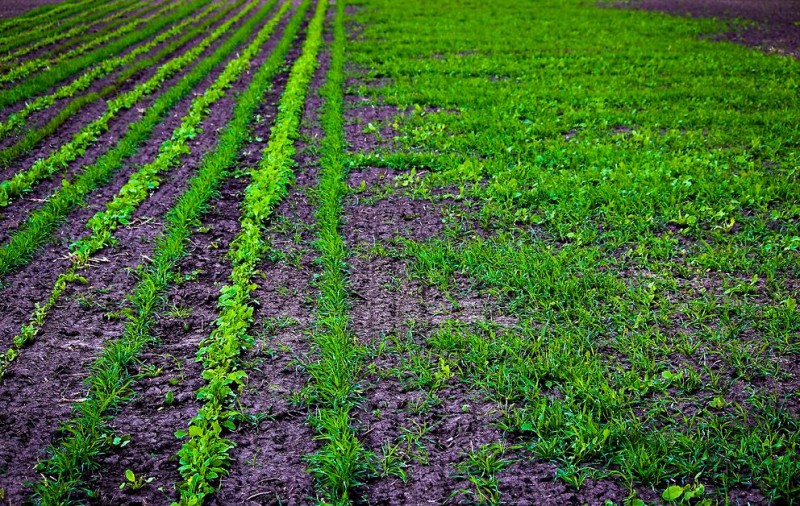
When it comes to sustainable agriculture, one of the most valuable practices that farmers and gardeners can adopt is the use of cover crops. Cover crops, also known as green manure, are plants grown primarily to benefit the soil rather than for harvest. By adding cover crops to crop rotation, farmers can significantly enhance soil fertility, prevent erosion, and foster a healthier, more sustainable farming ecosystem. In this article, we will explore the importance of cover crops and how they can positively impact agriculture and the environment.
1. The Role of Cover Crops in Soil Fertility
Cover crops play a pivotal role in boosting soil fertility. When they are grown, they help in fixing essential nutrients such as nitrogen in the soil. Leguminous cover crops, like clover and vetch, have a unique ability to convert nitrogen gas from the atmosphere into a form that plants can easily utilize. When these cover crops are incorporated back into the soil, they release nitrogen, enriching it for the subsequent crop, reducing the need for synthetic fertilizers, and thus minimizing environmental pollution.
2. Erosion Prevention and Soil Structure
One of the major challenges in agriculture is soil erosion. Intensive rain and wind can wash away the top layer of soil, leading to reduced soil fertility and nutrient depletion. Cover crops act as a protective blanket, safeguarding the soil from erosion caused by harsh weather conditions. Their extensive root systems hold the soil particles together, enhancing soil structure and reducing the risk of erosion.
3. Weed Suppression and Pest Control
Cover crops also help in managing weeds and pests. By covering the soil, they compete with weeds for light and nutrients, effectively suppressing their growth. This reduces the need for herbicides, promoting a more eco-friendly approach to weed control. Additionally, some cover crops release natural compounds that deter pests, thus contributing to integrated pest management strategies.
4. Increasing Organic Matter Content
As cover crops decompose, they add organic matter to the soil. This organic matter improves soil structure, water retention, and microbial activity. Microorganisms in the soil break down the organic matter, releasing nutrients for the following crops. This increased organic matter content contributes to long-term soil health and sustainability.
5. Mitigating Climate Change Impact
Cover crops can also play a role in mitigating the impact of climate change. As they absorb carbon dioxide from the atmosphere during their growth, they sequester carbon in the soil when incorporated. This carbon sequestration helps reduce greenhouse gas emissions, making cover crops an essential component of climate-smart agricultural practices.
6. Choosing the Right Cover Crops
Selecting the appropriate cover crops depends on various factors, such as climate, soil type, and the specific goals of the farmer. Some common cover crops include winter rye, buckwheat, hairy vetch, and crimson clover. Farmers can choose cover crops based on their ability to fix nitrogen, suppress weeds, improve soil structure, or attract beneficial insects.
7. Integrating Cover Crops into Crop Rotation
To maximize the benefits of cover crops, it's essential to incorporate them into crop rotation plans. By including cover crops in the rotation cycle, farmers can maintain year-round soil cover, reduce erosion risk, and continuously improve soil fertility. Crop rotation that includes cover crops can break disease and pest cycles, reducing the need for chemical interventions.
8. Addressing Challenges and Concerns
While cover crops offer numerous advantages, there can be challenges in their implementation. Timing the planting and termination of cover crops to ensure they do not compete with cash crops can be tricky. Moreover, in some regions, water availability may be a concern, as cover crops require additional moisture. However, with proper planning and management, these challenges can be overcome, and the benefits of cover crops can be fully realized.
Cover crops have become a crucial aspect of sustainable agriculture, providing a range of benefits that significantly enhance soil fertility and combat erosion. Their ability to enrich the soil with nutrients, prevent erosion, suppress weeds, and support climate change mitigation makes them a valuable tool for farmers and gardeners. By incorporating cover crops into crop rotation plans and adopting environmentally-friendly agricultural practices, we can create a more sustainable and resilient farming ecosystem.
PM Modi, President honor Kargil bravehearts on Vijay Diwas
India's Defense Minister Declares Bold Stand: Ready to Cross LoC to Safeguard Honor and Sovereignty